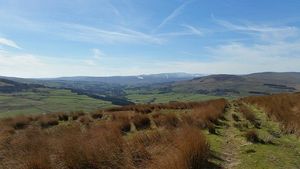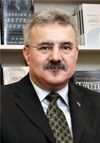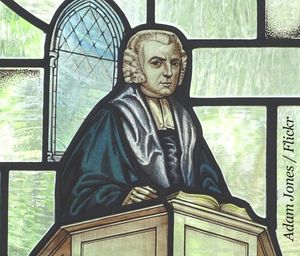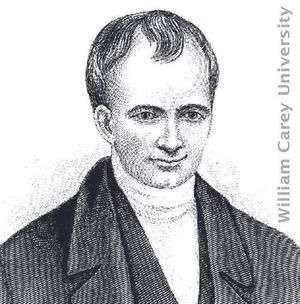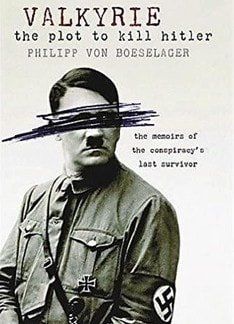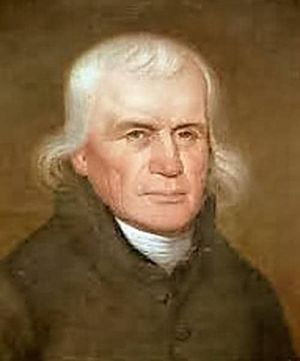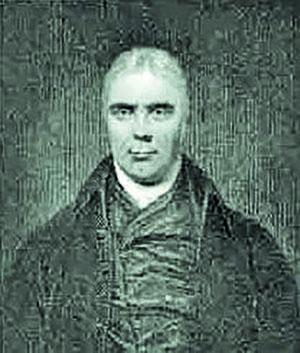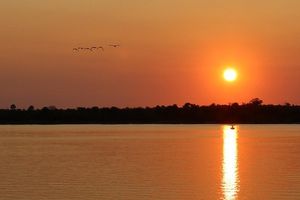According to some, the Calvinistic Baptists of the eighteenth century were in serious stagnation, even decline, for much of the century. This was the standard historical line on their condition before revival came to them from the late 1780s on into the nineteenth century.
Increasingly, however, it is being recognised that such a reading of the primary sources of this era is far too simplistic. English Baptist historian Roger Hayden, for instance, has argued persuasively that the Calvinistic Baptists in the West Country managed to maintain a vibrant Evangelical Calvinism throughout this period (Ph.D thesis, Keele University).
A good example of this spiritual vitality is William Mitchel (1662-1705), who evangelised tirelessly in the Pennines from the Rossendale Valley in Lancashire to Rawdon in West Yorkshire.
Mitchel was born at Heptonstall, not far from Hebden Bridge in Yorkshire. Nothing is really known about his upbringing. His conversion came at the age of nineteen after the death of a brother.
Although he was genuinely converted, Mitchel later saw himself as something of a Jonah, as he sought to go into business as a clothier and become wealthy. But God frustrated his worldly ambitions and drew him out as a preacher of the gospel.
Within four years of his conversion, he began to work as an itinerant evangelist. His cousin, David Crosley (1669-1744), a stonemason turned preacher, tells us that Mitchel’s aim in his preaching was to ‘chiefly set forth the exceeding rich and free grace of the gospel, which toward him had been made so exceeding abundant’.
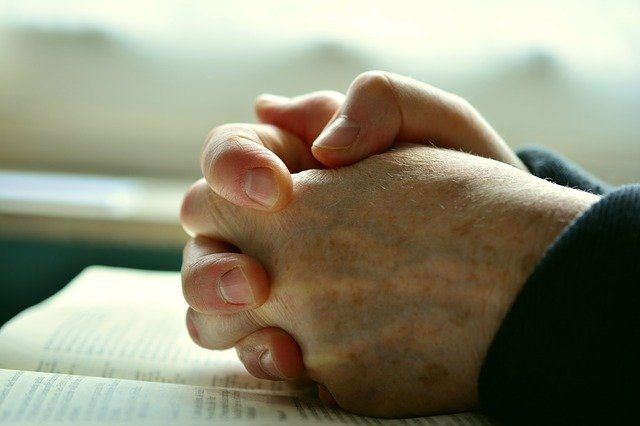
At the same time, we are told that his Christian life was one of unwearied diligence in ‘reading, meditation, and prayer’. Mitchel, Crosley and others travelled throughout the Pennines, often during the night so as to reach preaching venues in towns and villages by early morning. Crosley remembered the toil of walking ‘many miles in dark nights and over dismal mountains’.
But he also never forgot Mitchel’s ‘savoury and edifying’ preaching that took place anywhere Mitchel could get an audience, ‘on mountains, and in fields and woods’. Though Mitchel was not a polished speaker, crowds pressed to hear him.
Many came out of curiosity and some to scoff. But later, when their hearts and consciences had been moved by Mitchel’s gospel preaching, they confessed: ‘the Lord is with him of a truth’.
On one occasion he delivered a sermon at Barnoldswick, Lancashire. Crosley later told him: ‘never did I feel such a living, nay, such a quickening, power’ in Mitchel’s preaching. It was ‘like to a thunder-clap’ that caused his heart to ‘tremble and quake’.
Imprisoned
According to the Second Conventicle Act 1670 (part of the ‘Clarendon Code’ designed to break the spirit of the Nonconformists), what Mitchel was doing was illegal. The act forbade anyone over the age of sixteen from taking part in a religious assembly of more than five people unless it was sanctioned by the Church of England.
The act gave wide powers to local magistrates and judges to ‘suppresse [sic] and dissolve’ such ‘unlawfull [sic] meetings’ and arrest whoever they wished to achieve this end.
Mitchel was twice arrested under this law during the reign of James II (r.1685-1688). On the first occasion he was treated with deliberate roughness and spent three months in jail at Goodshaw. On the second occasion he was arrested near Bradford and imprisoned for six months in York Castle.
The enemies of the gospel who imprisoned Mitchel might have thought they were shutting him up in a dismal dungeon. To Mitchel, though, as he told his friends in a letter written from York in the spring of 1687, the dungeon was a veritable ‘paradise, because the glorious presence of God is with me and the Spirit of glory and of God rests on me’ (see 1 Peter 4:14).
He had been given such a ‘glorious sight of [God’s] countenance, [and] bright splendour of his love’, that he was quite willing to ‘suffer afflictions with the people of God, and for his glorious Truth’.
God’s servant
In a letter to a Daniel Moore during this same imprisonment, Mitchel wrote that he had heard that James II had issued a Declaration of Indulgence, which pardoned all who had been imprisoned under the penal laws of the Clarendon Code. But he had yet to see it.
Whatever the outcome, he told Moore, ‘the Lord’s will be done, let him order things as may stand with his glory’. This sentence speaks volumes about the frame of mind in which Mitchel had approached his time of imprisonment.
He was God’s servant. God would do with him as he sovereignly thought best. And Mitchel was quite content with that for, in his heart, he longed above all for his life to reflect God’s glory.
Church-planting
After release from his second imprisonment in 1687, Mitchel did not hesitate to resume preaching throughout the valleys and towns of the Pennines. There is little doubt that Mitchel’s evangelistic ministry was, at least in part, rooted in a love for perishing sinners.
He told Richard Core, a fellow minister of the gospel, that the conversion of one poor soul is ‘more worth than the whole world, yea than all the riches, honours, profits and pleasures of it, in which the whole world glories’.
God was pleased to honour such a conviction, and through his ministry and that of Crosley twenty preaching stations were established in the Pennines. In time, the majority of these became Calvinistic Baptist churches.
In time, Crosley moved on to preach further afield. He is described by one writer as having ‘lacked the grace of settlement’. Eventually he ended up for a few years in London, where he became pastor of the Cripplegate church that Hanserd Knollys (1599-1691) had founded.
Because of a fall into grave immorality, Crosley had to leave this church in 1709. By the following year he had made his way back to the north. It was long after Mitchel’s death that Crosley regained his credibility and served as a pastor once more.
Crosley’s remarkable story has been superbly told by Baptist historian B. A. Ramsbottom in his booklet The Puritan Samson: The Life of David Crosley 1669-1744 (1991).
Lasting fruit
Mitchel stayed in the north. Various letters of his have survived that show him shepherding the groups that had been gathered, answering doctrinal queries on such matters as election, fighting incipient Antinomianism — ever a bugbear for Calvinism — and enjoying fellowship in Christ with Congregationalists as well as Baptists.
Running through all his labours was this keynote: to have ‘less of man and more of Christ’ and to ‘have man laid low and more abased, and Christ exalted and more set up’ (Letter to Friends at York, 13 July 1691).
In 1692 a meeting-house was erected in Bacup which became Michel’s home church. Other meeting-houses would follow, some of which became important Baptist works in the years to come: Rodhill End, near Todmorden (1703); Cloughfold (1705); Gildersome (1707); Rawdon (1712).
Mitchel died in 1705, before some of these churches were planted. His motivation, as he noted in one of his letters, was singular and clear: a desire for the good of souls and the glory of Christ.
As he wrote in one of his letters, concerning the groups of believers he sought to serve: ‘What but entire love and a longing desire after the good of their souls could have induced me to have exposed myself as I have, in spending my time, wasting my health and strength, neglecting and slighting my family, and exposing myself to many reproaches … so that surely my people and children for whom I have travailed in birth and pain, these many years, to see Christ brought forth in them, cannot think anything but pure love hath engaged me to what I have done upon their accounts and for them. As for honour and vainglory, I have neither sought it nor had it’.
I am indebted to the Local Studies Unit Archives, Manchester Central Library, for the use of the letters of William Mitchel. The letters are kept in the Papers of Dr William Farrer. Thanks are also due to David J. Woodruff of the Strict Baptist Historical Society who provided me with a copy of the letters.

